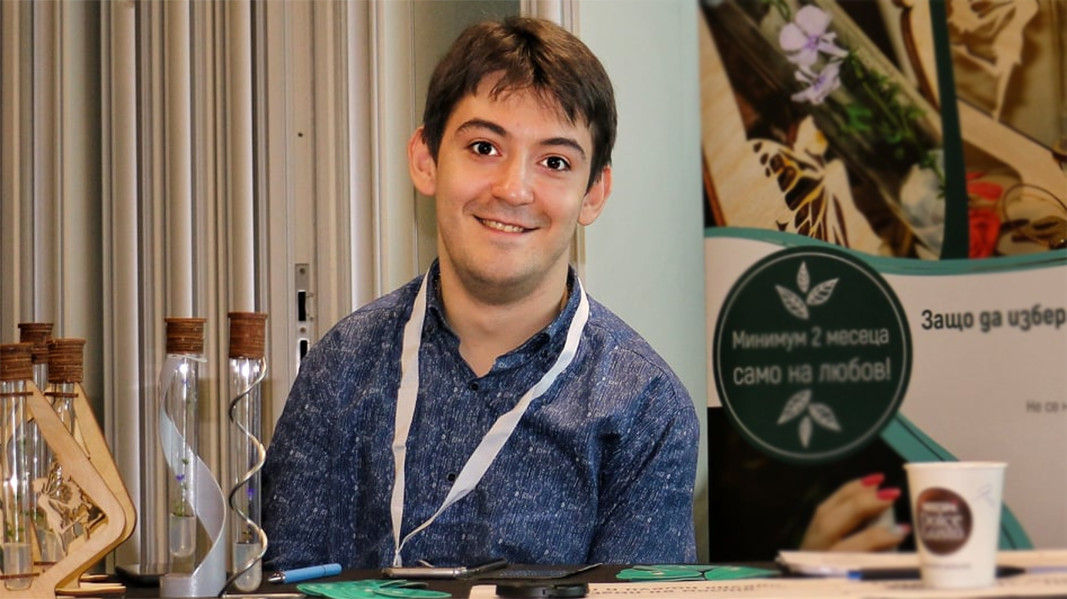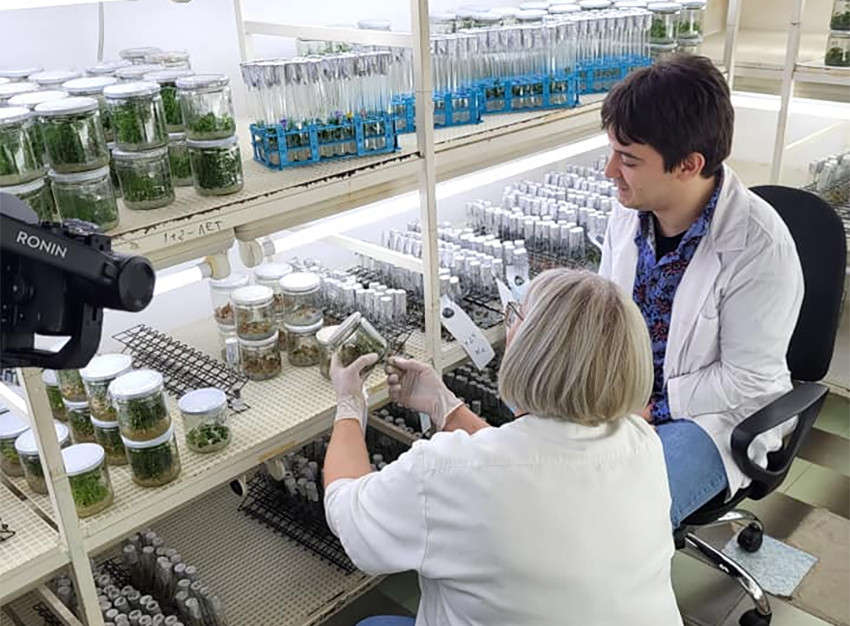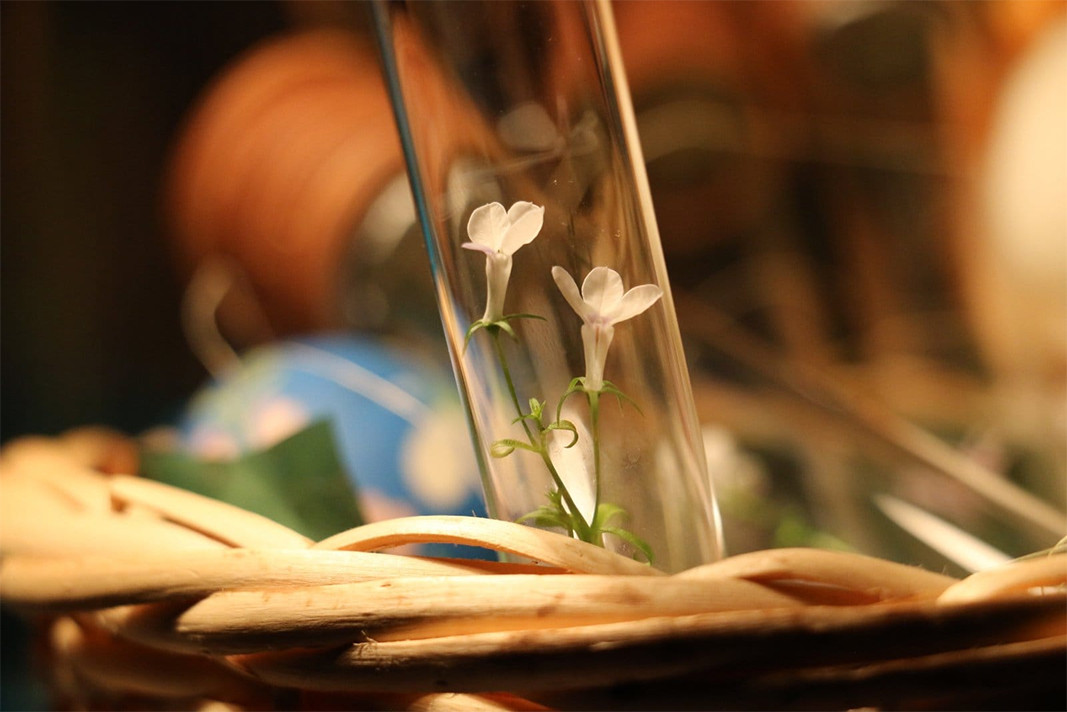"Flower in a Test Tube" is an innovative project that creates a new product using plant biotechnology. But it does more than that—it tells a story about the power of the human mind and heart. The idea comes from Petar Neftelimov, a young man born with cerebral palsy. In 2020, while studying biotechnology at the Faculty of Biology at the Sofia University ''St. Kliment Ohridski'', he came up with the idea of creating flowers in test tubes using the Micropropagation (in vitro cultivation) method of plants.

Four molecular biology students joined the project. According to the team, this is a way to present science to people in an interesting and entertaining way. They received program funding to the tune of 15,000 BGN (EUR 7.500) and dedicated their efforts to finding a lab where they could bring the idea to life.

Later, a company was founded to distribute "Flower in a Test Tube" in practice. Over the past five years, Petar Neftelimov's idea has been drawing steady interest from both private individuals and corporate clients.

Natural gas prices are expected to fall by about 14% from current levels, Bulgargaz CEO Veselin Sinabov told a public meeting of the Energy and Water Regulatory Commission (EWRC). This means that one megawatt hour will cost 31.91 euro, compared to 36.88..
The Bulgarian National Bank (BNB) has revised upwards its expectations for Bulgarian economic growth in 2025 but lowered its GDP growth forecast for 2026, it transpired from the Bank's regular quarterly Macroeconomic Forecast. In its March..
Bulgaria’s debt for 2024 amounts to BGN 48.846 billion (EUR 24 billion), or 24.1% of the country’s GDP, preliminary data from the National Statistical Institute (NSI) show. In 2023, the country's debt was BGN 42.383 billion (EUR 20.8 billion), or..
After the controversial success of the "Green Deal" and carbon emission quotas, which made electricity in Europe much more expensive..

+359 2 9336 661
